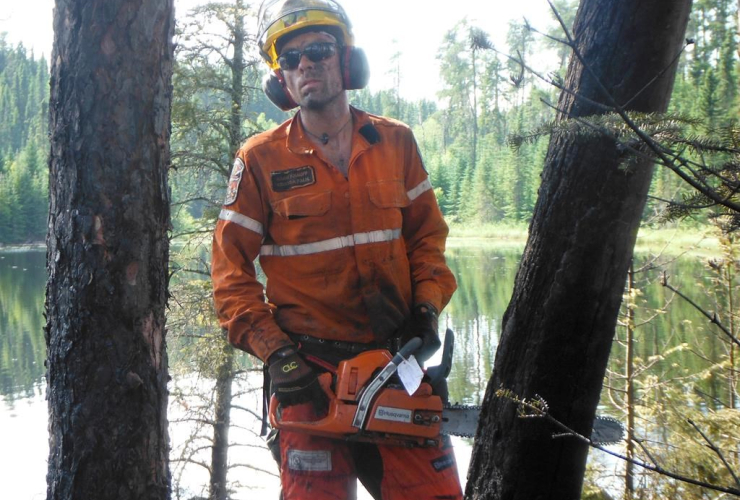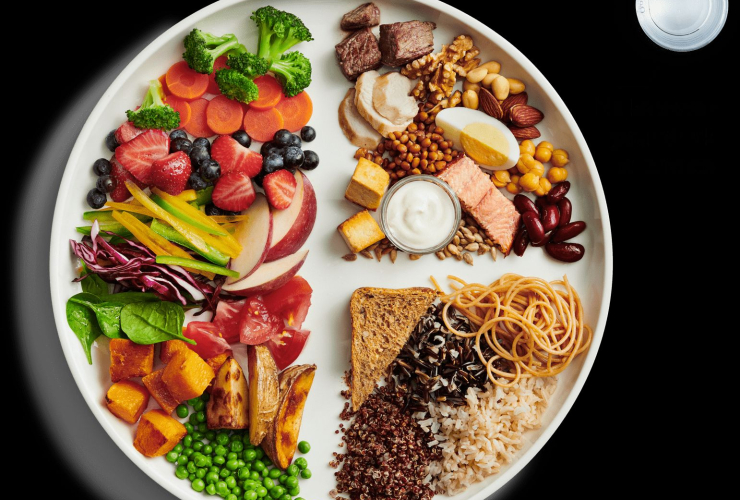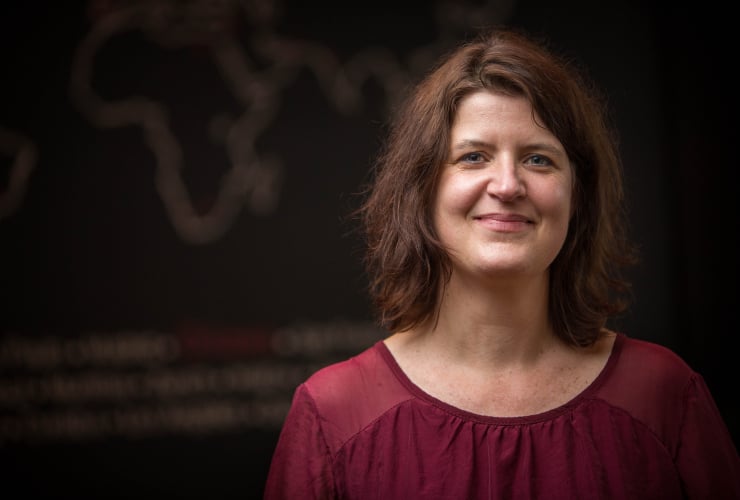This story was originally published by Grist and appears here as part of the Climate Desk collaboration.
In one of those interchangeable American office parks, where oceans of blacktop pool around lowrise grey-on-grey buildings, a gaggle of kids in white lab coats gathered to apply temporary burger tattoos, conduct mini science experiments, and await the arrival of a radically transformed food system.
The backs of those lab coats were decorated with the initials IF standing for “Impossible Foods,” the eight-year-old startup working to replace all animal meat with its plant-based alternatives.
The kids went from table to table under big white tents in the parking lot behind company headquarters. There was a station where they could try and guess the flavor of jelly beans while wearing nose plugs (it’s almost impossible), and another where they could make little wind turbines out of paper. The vibe was more grade-school science fair than Silicon Valley bacchanal, despite the fact that the company is flush with cash.
Investors are clawing and shoving for the opportunity to throw money at young alternative-meat companies. Impossible just raised $300 million in its fifth time going back to the money well. Another veggie-burger maker, Beyond Meat, saw its stock price increase more than 600 percent since it first went on sale in May. Del Taco, Carl’s Jr., and T.G.I. Friday’s are selling Beyond Meat products, while White Castle, Burger King, and Qdoba are offering Impossible burgers — and the company can’t make enough to keep up with demand. Things seem a little frothy: Is this a faux-meat bubble?
Impossible Foods’ kid-centric event was perfectly crafted to quash fears that America’s enthusiasm for its burgers is just a flash in the pan. The company organized the party to herald a set of survey findings showing that young people are more likely than past generations to seek out meat alternatives. The report attempts to dispel any bubble fears in the very first line: “Plant-based meat is the hottest trend of 2019 — but it isn’t a passing fad.”
The company’s founder and CEO, Pat Brown, got on the stage to field questions from the kids — mostly children of employees. Half a dozen stumpy arms reached high. A boy who endearingly pronounced his Rs as Ws asked, “Does the Impossible Burger have the same protein as a regular burger?”
“What a great question. Are you a nutritionist or a doctor?” Brown asked, before answering, basically, yes, and iron too.
A girl with horn-rimmed and pink glasses and punctilious diction asked, “How long did it take you to perfect the formula?”
One advantage over animal meat, Brown pointed out, is that the recipe is never perfected — they keep improving it every day.
Brown asked for a show of hands. “Who loves to eat hot dogs? Fish sticks? Hamburgers?”
All the kids’ hands were up by the end of that list, but he went on: “Who here is really glad that they came from dead animals?”
The hands went down and an uncomfortable silence descended.
“I promise that by the time you are adults the meat you eat will not come from dead animals,” Brown said. “You can come find me and beat me up if I’m wrong.”
According to Brown, 2035 is the year humans will have finished upgrading their diets from carnivory. If we even got halfway there it would be a tremendous boon for the environment because our hunger for meat drives deforestation around the world. Livestock and its feed takes up 80 percent of our agricultural land. More forests are likely to fall for the sake of meat as global poverty continues to decline and more people get the chance to cook steak and eggs.
For now, customers have to be driven by ethics or curiosity to eat these meat alternatives because Impossible Burgers are more expensive than their flesh-based counterparts. But that should change, Brown told me at the event, because plant-based burgers require less land and resources than ground chuck. Impossible Burgers should be cheaper as soon as the company is big enough to capture the efficiencies of mass production, he said.
And when will that be?
“With the caveat that this depends on scaling and other variables, probably three years with a high degree of certainty,” Brown said.
That would put Impossible Foods somewhere around its 11th birthday — on the brink of puberty. It’s nearly impossible to gauge a kid’s potential from their youthful accomplishments, and there’s already signs of potential trouble: The beef industry, alternative-medicine hucksters, and some environmental groups have started attacking meat alternatives as dangerously high-tech foods. But if Brown is able to brush by those objections and hit his three-year target, he might have to drop the first two letters from the name of his company.
I could see this happening.
I could see this happening. From personal experience (though this doesn't seem to be anything new), beef is super expensive. With reduced "buying power" as a result of conservative politics, actual beef producers would suffer the financial losses, and alternative businesses or groups would probably take over the land.
Of course, there's also the possibility that the "silvopasture" idea catches on and becomes the standard, in which case beef may still be common.
Brown may be able to "brush
Brown may be able to "brush by" objections by "alternative medicine hucksters," but I would hope that the National Observer could take a more responsible approach, strengthening this superficial article by adding some simple research on concerns over GMO soy.
It's important to know how a new foodsource will affect a population, and asking the person who will profit from it doesn't seem to me to be the best way to do this. Without oversight, the "impossible burger" may be just trading one problem for another.
I am deeply disappointed at this rehashed and superficial article, and hope this doesn't mean that the Observer is lowering its reporting standards. I'm sure other subscribers feel the same way.
Agreed. Some critical
Agreed. Some critical analysis is sorely lacking.
In particular, this industrial soy-based pseudo-food has benefits only when compared to industrial meat (animal cruelty, huge carbon footprint, antibiotics etc). Meat from animals raised on small, traditional farms has a completely different impact.
The meat industry is a by-product of capitalism; soy "meat" production within capitalism will at best be slightly less destructive. It will be based on monoculture, require a massive fossil fuel-based infrastructure and siphon profits towards shareholders. So really, nothing to get excited about.
A study by an international
A study by an international team at the University of Oxford's Food Climate Research Network concluded that "grazing livestock – even in a best-case scenario – are net contributors to the climate problem, as are all livestock. Good grazing management cannot offset its own emissions, let alone those arising from other systems of animal production."
https://theconversation.com/why-eating-grass-fed-beef-isnt-going-to-help...
of course we will all be
of course we will all be eating highly processed toxic food filled with glyphosate . The largest private land owners in the US are Jeff Besos and Bill Gates getting ready to grow soy for their investment "impossible burgers". Gates has a history of pushing out smaller farmers in India, and now Africa, by getting them all to grow monocultures of GM food and using Glyphosate and chemical fertilizers. He was kicked out of India as this became unsustainable for the small farmers. Read Vandana Shiva ,scientist and activist, for information on this. National Observer, perhaps you could do a story with her to explain this better than I can.





Comments